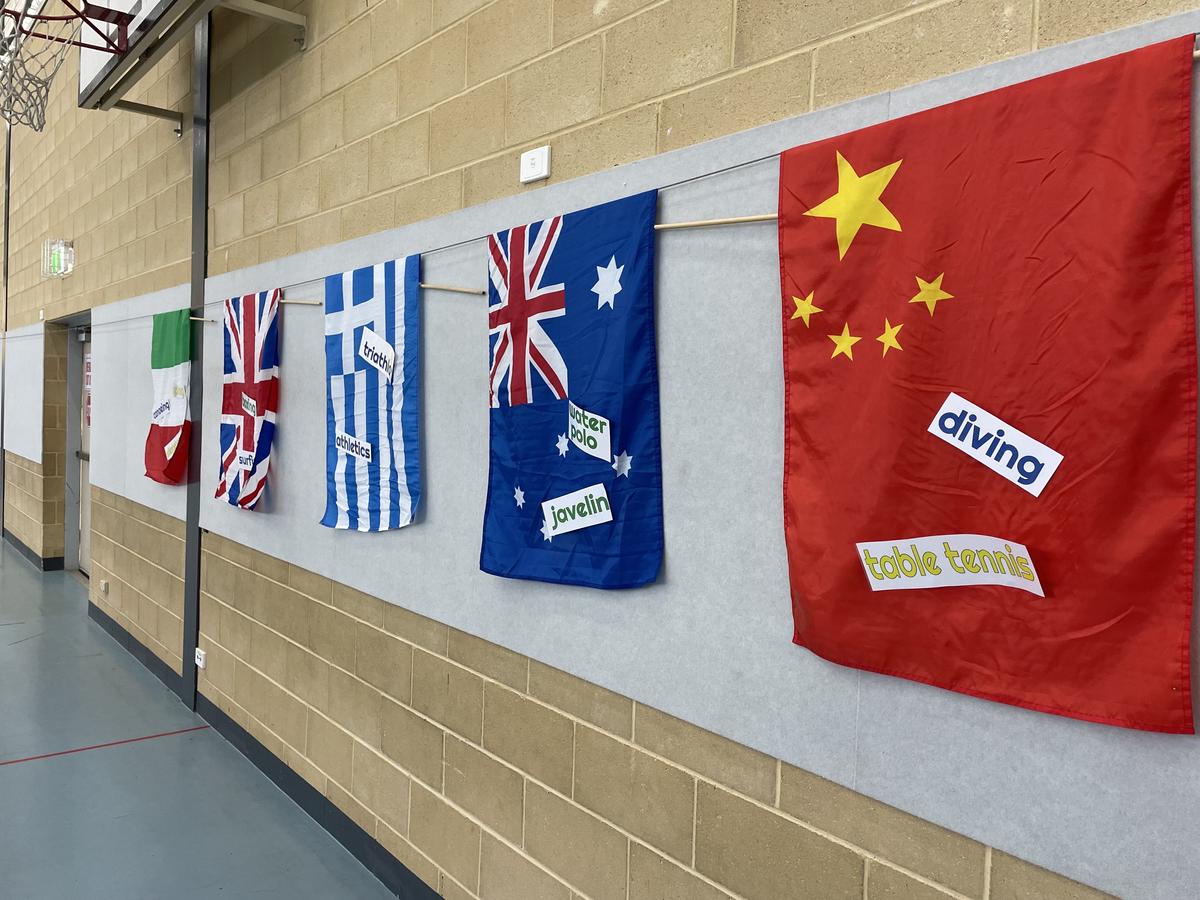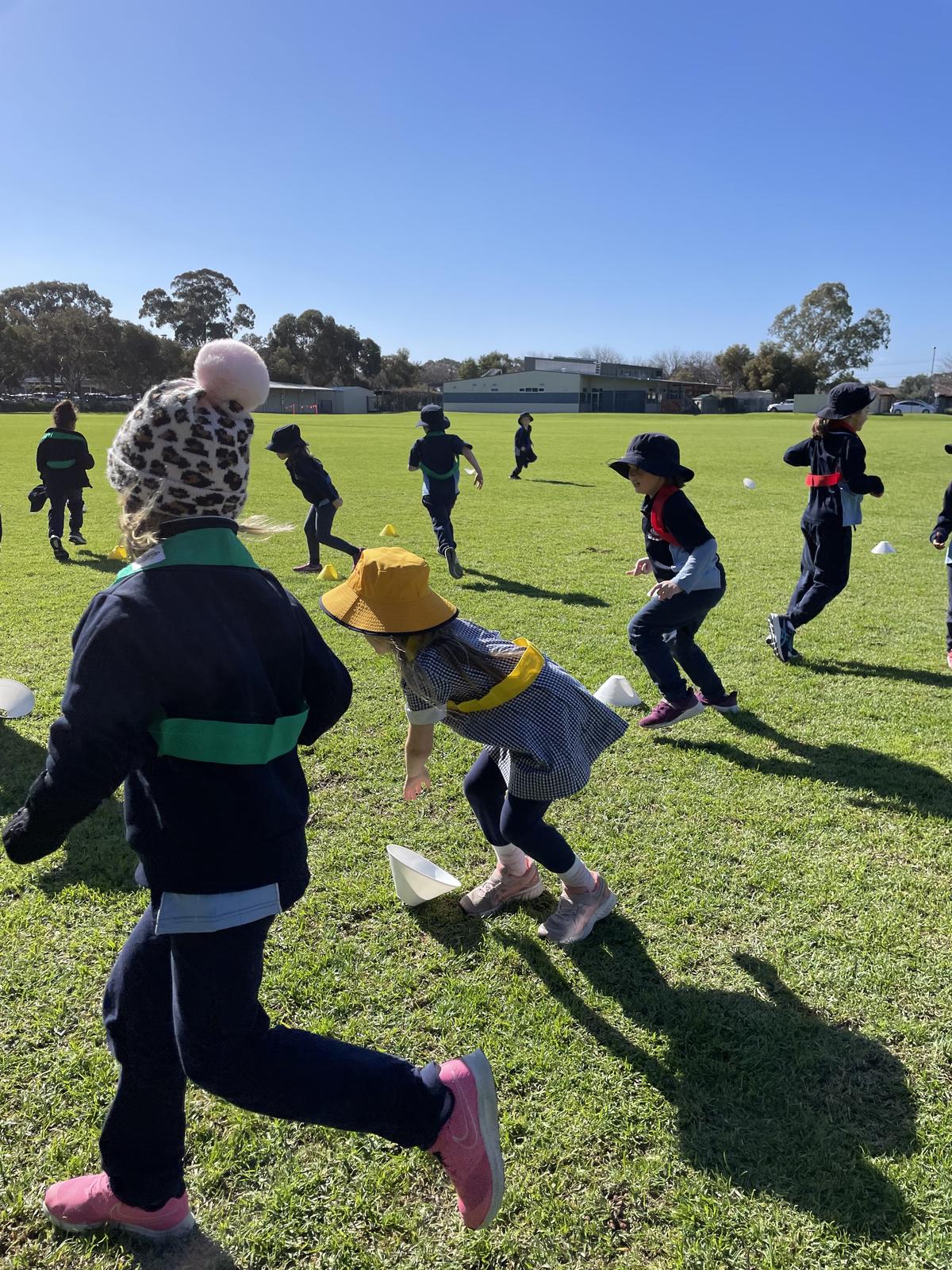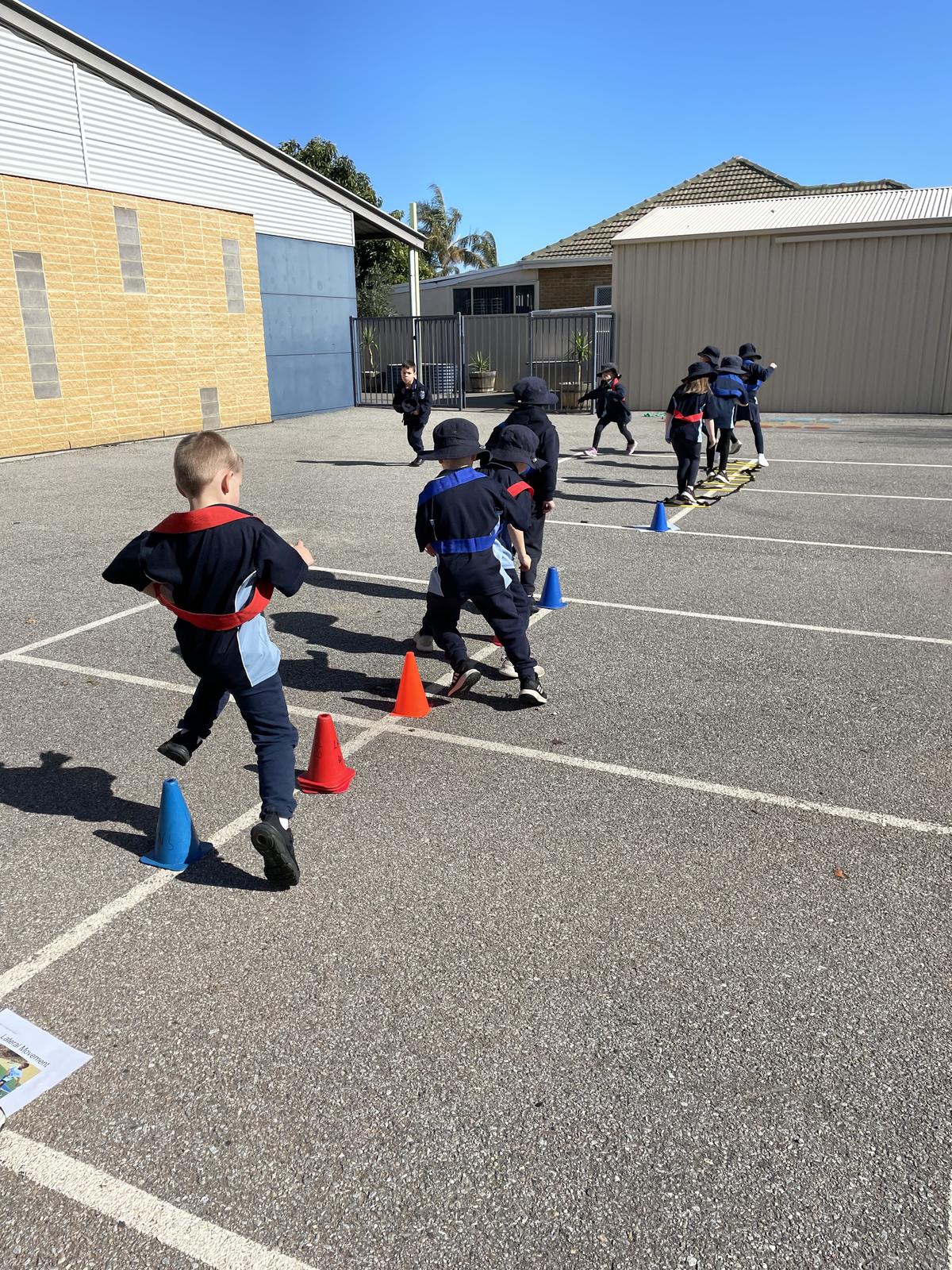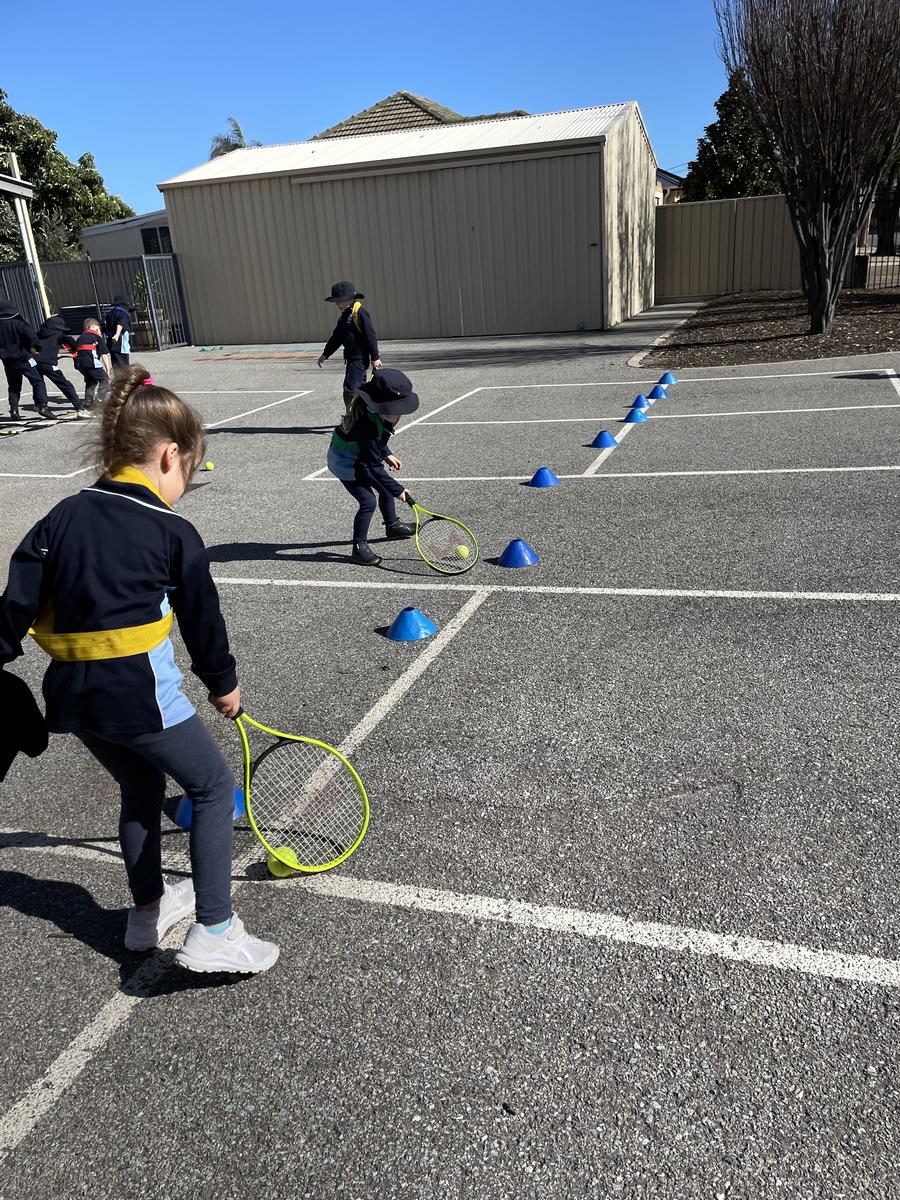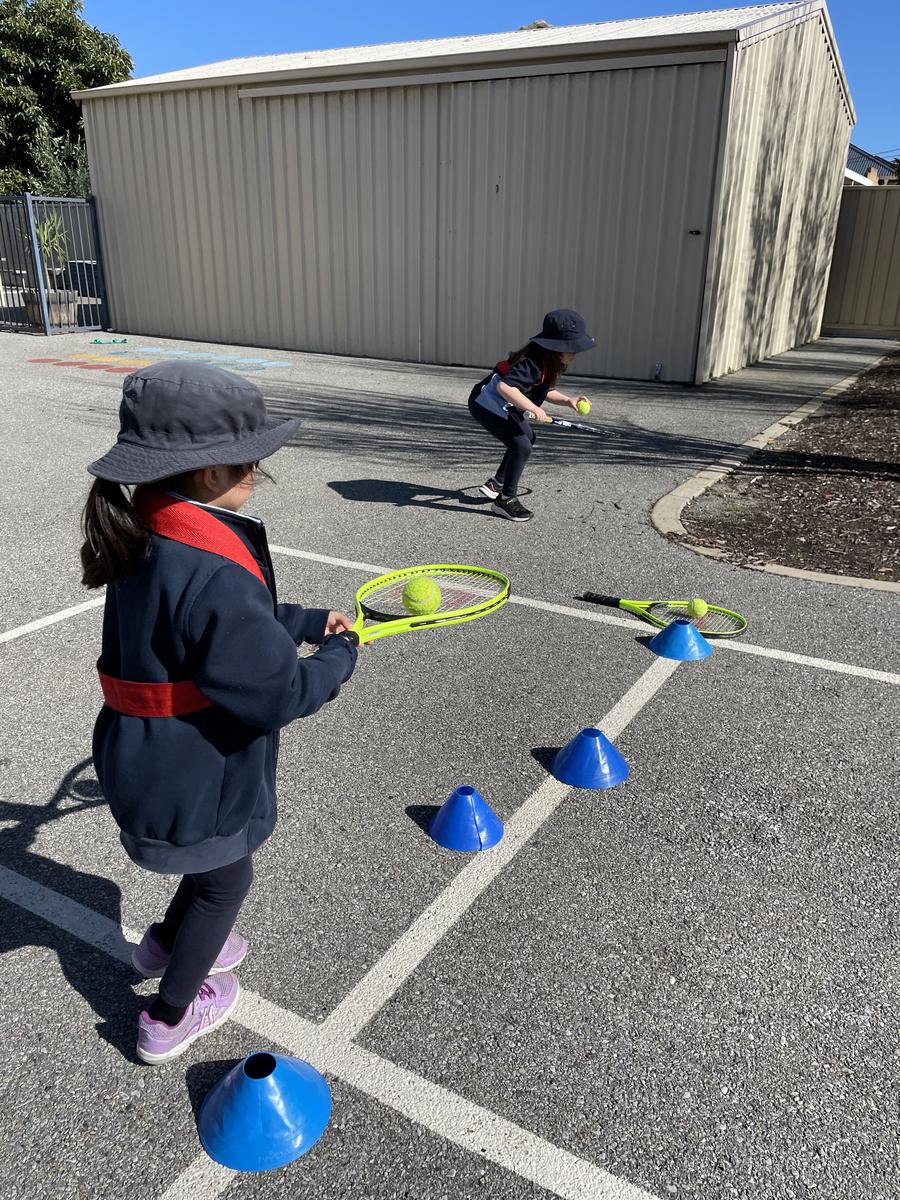Science / German / PE
We are confident when we try new things and have new experiences. We love learning about the world around us and persist to improve our skills.
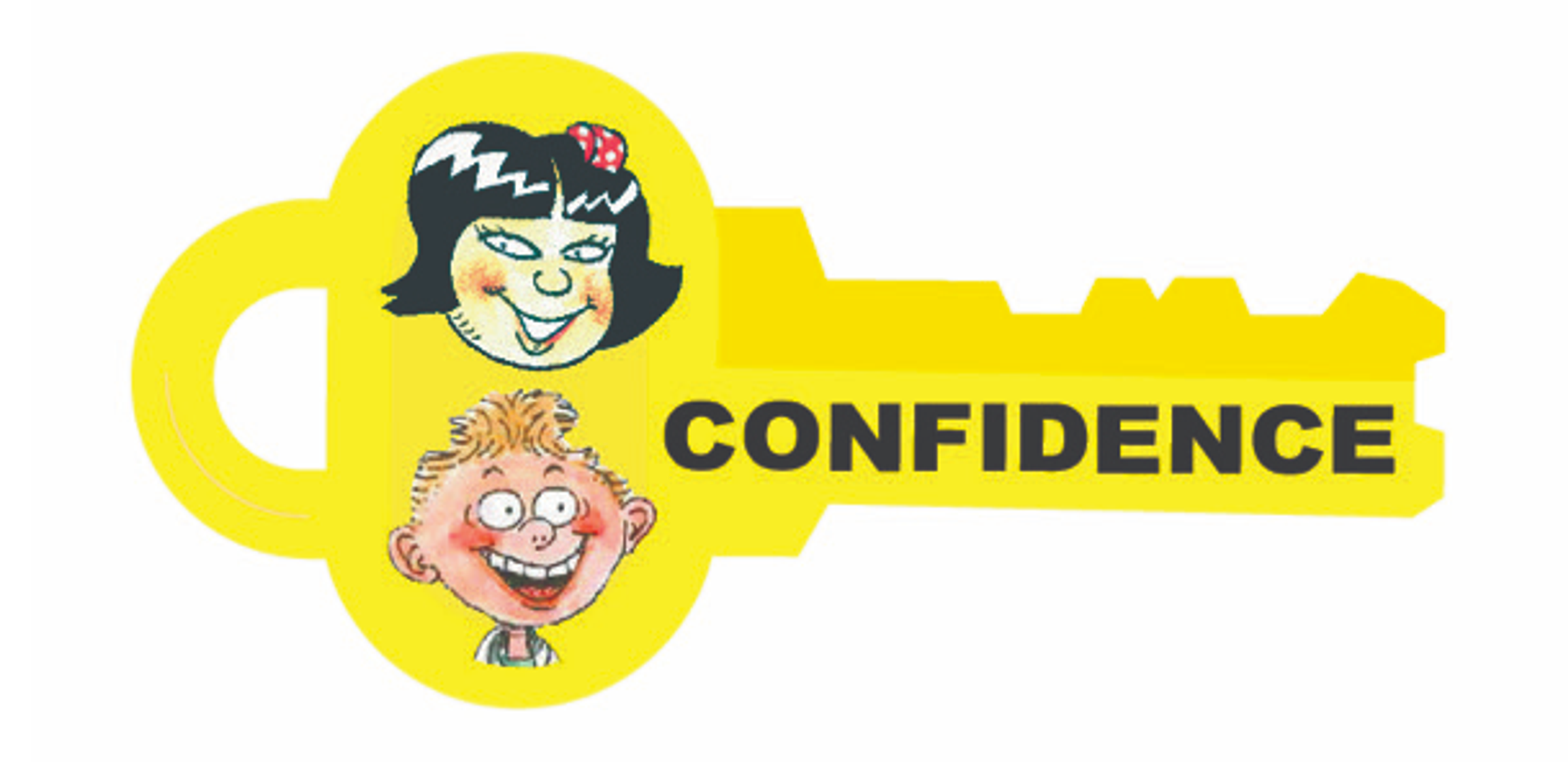
Science / German / PE
We are confident when we try new things and have new experiences. We love learning about the world around us and persist to improve our skills.
In Science, learning through experience is at the core of teaching with students encouraged to interact, describe and share learning. A significant focus is to provide opportunities for students to learn through discovery – participating in purposefully designed activities. Learning has been designed to spark curiosity and provide students with skills to develop questioning by communicating and sharing observations and ideas.
Students are given opportunities to collaborate within a group situation in order to build the skills to value the contribution of others, as well as be confident to share their own ideas and opinions. They are encouraged to try new ways of learning by undertaking a range of investigations by recording and sharing observations and findings.
The focus for Term 3 is observing and describing the characteristics of a selection of living things and that they have basic needs, including food and water. Students will be exploring through a range of engaging, hands on inquiry experiences. This topic fits into the Biological Sciences strand of the Australian Curriculum and develops their scientific thinking and critical and creative thinking skills.
Linking with the Australian Curriculum strand of Biological Sciences, students will have the opportunity to predict, observe and question to then share conclusions and observations.
We will be celebrating Science Week later in the term. The theme is related to food.
Activities will involve germinating seeds and sampling “rainbow” fruit and vegetables.
In Term 4, we will be exploring earth and space sciences where students are encouraged to inquire into the world around them and beyond. We will start the term by looking into weather patterns. This will then be leading into an inquiry into our local environment and how the weather affects everyday life.
Each class has two Science lessons per week. This Semester Science is as follows:
R7 Science with Mr Barwa on Monday.
R8 have two single Science lessons - Monday with Mr Barwa and Tuesday with Mrs Pagonis.
R9 Science with Mrs Pagonis on Tuesday.
Richard Barwa
richard.barwa911@schools.sa.edu.au
Voula Pagonis
voula.pagonis555@schools.sa.edu.au
We concluded first semester with a special celebration and distribution of Schultüten to all of our Reception students. These traditional German gifts are given to children in German on their first day of school. We follow this tradition at LNPS and our Fisher Year 6/7 students worked hard in their German lessons with Frau Chestermann to create special Schultüten for their buddies. and were excited to finally be able to give them to our 2021 Receptions.
As part of this celebration, we were fortunate to have Reinhard and Saskia join us from Bund der Bayern for a performance of German folk dancing (Bavarian Schuhplattlern) and bell ringing. This was a highlight of the assembly!
In our weekly German lessons, Reception students use language in context through familiar routines, games, songs and repetition. They exchange greetings and information making connections between English and German. Students interact with peers through action-related talk and play and in routine exchanges such as opening and closing lessons, naming the day of the week and responding to the class roll. They play simple games to reinforce vocabulary knowing that repetition builds confidence. Question and response plays a big part in developing dialogue between both teacher and student as well as between peers. Each lesson provides opportunities for students to listen and respond. They also participate in guided activities such as songs, rhymes and games to reinforce vocabulary using simple repetitive language. Oral interaction continues to play a large part in every lesson. Encouraging everyone to have a go and to participate to progress.
Students have shown they can respond to greetings and roll call in German, count to ten and state their age, they are beginning to identify colours to describe and recognise different words to express how they are feeling.
This semester we will further develop our understanding of German as another language, continuing to look at the world and recognise where we are and that other languages are spoken in different places. The Olympics provides a good conversation to support this.
In Term 4, our students will meet two puppets, characters visiting from Germany, Felix (a frog) and Franzi (a duck) - they will be introduced through video adventures and activities; a resource developed by the Goethe Institut for Language learning in the early years.
Ask your child to share with you something they have learned or tell you what they can say in German. See what they can teach you!
Each class has one German lesson per week. German lessons are on the following days. R9 Montag (Monday) R7 Dienstag (Tuesday), R8 Donnerstag (Thursday).
(Frau) Libby Edwards
elizabeth.edwards559@schools.sa.edu.au
PE
This semester will begin with a focus on the Tokyo Olympic Games. What better way to develop and transfer children’s skills than across a variety of sports. Children will inquire into net and wall, striking and fielding and target games. They will continue to practise and perform fundamental movement skills with a focus on body management skills (balancing, rolling, stretching, twisting) locomotor skills (running, hopping, dodging, galloping) and object control skills (throwing and catching, striking, bouncing) to solve movement challenges. Through modified games of tennis, softball, badminton and ultimate frisbee children will continue to demonstrate, move and play safely and fairly and describe how their body responds to physical activity. Children will continue to be exposed to indigenous games and learn about Aboriginal and Torres Strait history and culture. They will reflect on new skills introduced both in written form and verbally, using technical vocabulary to communicate strategies to be successful. PE lessons will be based on the TPSR model ( Teaching Personal and Social Responsibilities) whereby children will aim to develop respect, effort, self direction and leadership and transfer these skills outside of PE. At the beginning of Term 4 we will begin preparing for our annual Sports Day/Colour Run event, no doubt the biggest calendar event of the school year. Sports Day/Colour run will be held on Thursday 4th November. Children will participate in various tabloid events, ensuring children can feel confident, successful and participate with enthusiasm on the day. Sports Day supports children to build confidence, foster communication between peers and learn important social skills like turn taking, sharing and encouragement in a safe, supportive environment.
Premier's Be Active Challenge
Children at LNPS have been busy keeping physically active in this uncertain time, participating in school events such as Virtual Cross Country and keeping active at home in lockdown. Congratulations to all the students who have returned their PBAC booklets to school. Don’t worry if you haven’t because there is still time.
The challenge is to participate in at least 60 minutes of physical activity on at least 5 days of the week for 4 weeks. After 4 weeks of daily recorded physical activity children will receive a medal. Simply record your progress on the booklet provided, sign and return your registration form to the front office. The Challenge finishes on the 24th September 2021, so there is still time.
Students are reminded to wear suitable clothing and footwear to all PE lessons to ensure their full participation.
Our Reception PE lessons are Tuesday R8, and Thursday R9 and R7.
Amy Byrnes (Early Years PE teacher)
Amy.Byrnes464@schools.sa.edu.au
